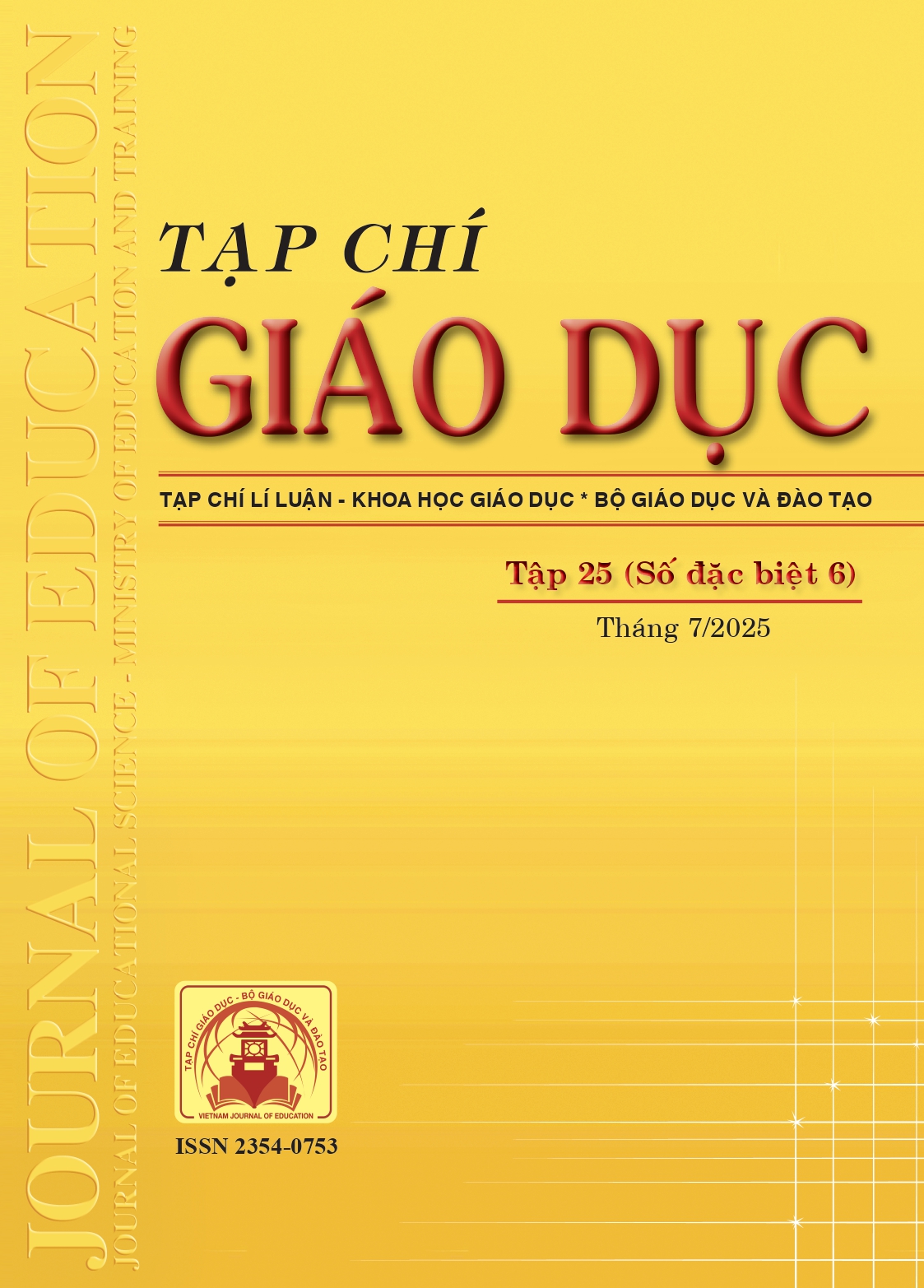Tính tự lập của trẻ mẫu giáo 5-6 tuổi ở một số trường mầm non tại thành phố Cần Thơ: thực trạng và kiến nghị
Tóm tắt
Independence is an important foundation to help children believe in themselves, know how to take care of themselves and face challenges. For 5- 6-year-old children, this is an essential skill in addition to basic knowledge, helping children to be confident, independent and ready for grade 1. Independence is also a solid stepping stone for their future journey of adulthood. The article presents some theoretical bases for independence, the role of independence in the development of preschool children; analyzes the current situation of independence education for 5-6-year-old preschool children in some preschools in Can Tho city through 06 basic activities in preschools, thereby giving some recommendations suitable to practice to contribute to improving the effectiveness of independence education for children in the surveyed area. Nurturing and training independence from an early age is essential to create a foundation for the comprehensive development of children's intelligence, emotions and social skills, helping children become independent, confident and capable of managing their own lives, creating a solid foundation for their future life.
Tài liệu tham khảo
Adhani, D. N., Mayangsari, D., & Susilawati, S. (2025). Factors Affecting The Development Of Independence Of Children Aged 2-3 Years At TPA X. Jurnal Konseling Pendidikan Islam, 6(1), 150-166. http://doi.org/10.32806/jkpi.v6i1.671
Bộ GD-ĐT (2021). Chương trình giáo dục mầm non (ban hành kèm theo Thông tư số 01/VBHN-BGDĐT ngày 13/4/2021).
Einon, D. (2006). Learning early. Jakarta, Indonesia: Grasindo.
Hoàng Thị Hải Quế (2023). Một số biện pháp giáo dục tính tự lập cho trẻ mẫu giáo 5-6 tuổi thông qua hoạt động chơi ngoài trời. Tạp chí Thiết bị Giáo dục: Nghiên cứu ứng dụng, 1(284), 102-104.
Honcharenko, S. (1997). Ukrainskyi pedahohichnyi slovnyk. Kyiv: Lybid.
Lê Thị Huyên (2022). Xây dựng tiêu chí và thang đo mức độ tính tự lập của trẻ 4-5 tuổi trong các hoạt động ở trường mầm non. Tạp chí Giáo dục, 22(3), 19-24.
Lê Thị Huyên (2023). Đánh giá mức độ tính tự lập của trẻ 4-5 tuổi trong các hoạt động theo hướng trải nghiệm ở trường mầm non. Tạp chí Khoa học, Trường đại học Hồng Đức, 63, 80-90.
Nguyễn Thị Nhung (2016). Giáo dục tính tự lập cho trẻ mẫu giáo - Vấn đề cấp thiết hiện nay. Tạp chí Khoa học Giáo dục, 129, 49-51.
Phan Trọng Ngọ, Lê Minh Nguyệt (2021). Giáo trình các lí thuyết phát triển tâm lí người. NXB Đại học Sư phạm.
The Maria Montessori School (2020). How the Montessori Method builds independence. https://www.mariamontessorischool.org/how-the-montessori-method-builds-independence
Yarmachenko, M. (2001). Pedahohichnyi slovnyk. Kyiv: Pedahohichna dumka.
Đã Xuất bản
Cách trích dẫn
Số
Chuyên mục
Giấy phép

Tác phẩm này được cấp phép theo Ghi nhận tác giả của Creative Commons Giấy phép quốc tế 4.0 .












